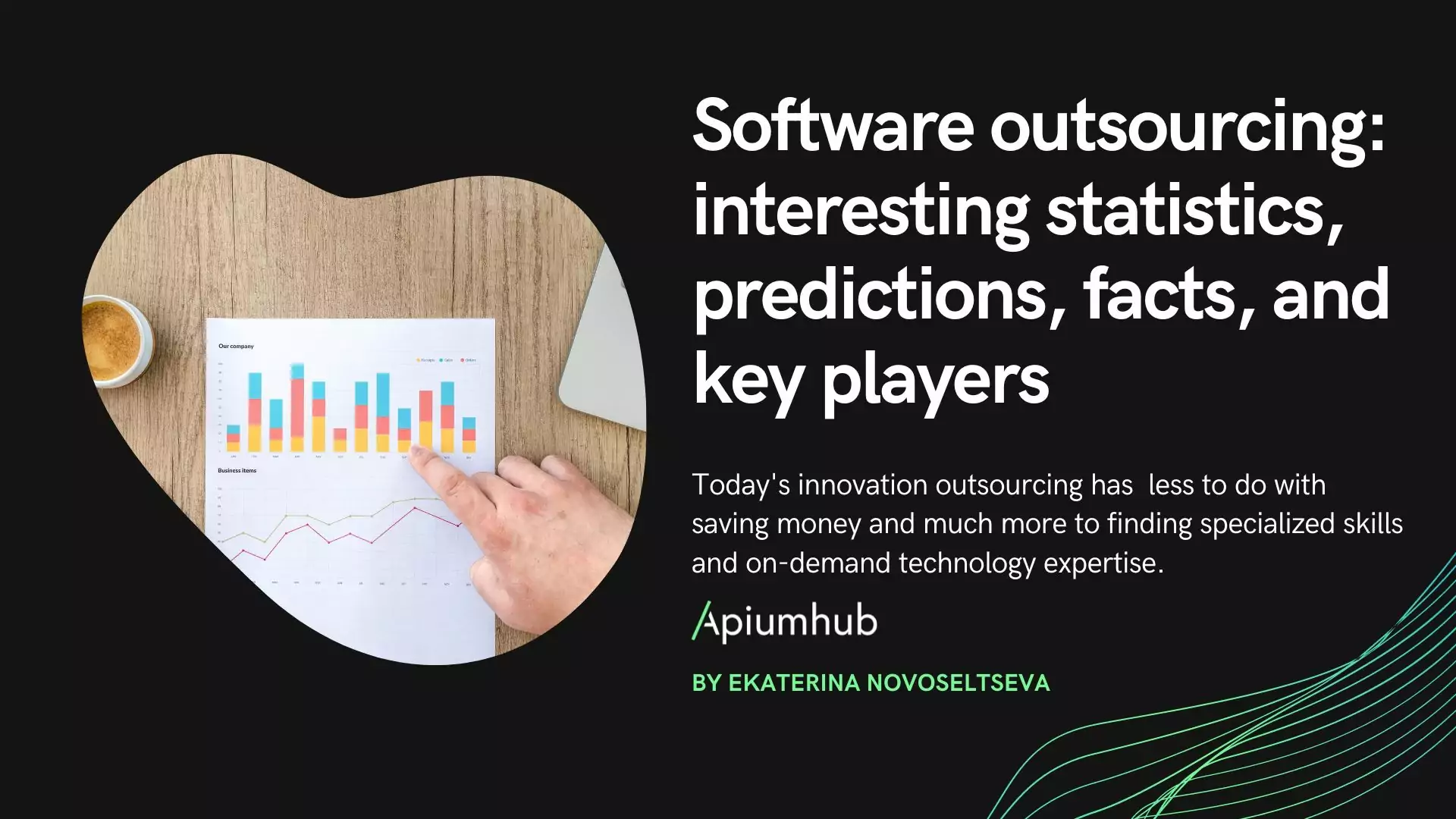Table of Contents
This year we hear a lot of Proptech, Fintech, InsurTech, Medtech, EduTech, etc. However, a lot of people are not sure about what these acronyms mean exactly and why they became buzzwords. Today we will talk about Proptech, but I promise you to cover other “Tech” acronyms in the upcoming posts.
So, what is PropTech? Real Estate Technology or Property Technology is often referred to as RE Tech or PropTech. Basically, it is a use of technology in the real estate industry to make transactions more efficient.
The wave of disruptive solutions using innovative technologies recently entered a significant sector of the world economy: real estate. Through the transformation of this sector in an increasingly digitalized world, a new concept was born, bringing with it billion-dollar opportunities.
Proptech benefits & opportunities
PropTech gives us a lot of new opportunities and makes the process more efficient.
Virtual reality
Investors are increasingly able to enjoy an end-to-end experience from the comfort of their living rooms. Such technologies complement the process, allowing potential customers to save time and physically visit properties only after the first approval has been made. Advancements in this area also allow home builders or renovators to be able to use virtual reality headsets to get a sense of what the property will look like once it is completed.
Automation
Administrative duties such as the processing of extensive volumes of paperwork have been automated, leaving those in the industry with more time to concentrate on providing excellent service. Also, reminders including rent due dates, viewings and check-ins and checkouts can be automated which means the property manager doesn’t forget a thing. Another great thing is a legal aspect, the software can constantly update your documentation to ensure you have a legal contract, notice etc. It also helps the property manager abide legally by reminding when something needs to be done. As an expiry date approaches for a certificate, systems are able to automatically contact contractors or managers to inform them of the news. This prevents a manager’s business from falling behind in terms of compliance.
Matchmaking platforms
We all this boom of matchmaking platform, more and more startups come up with the ideas of how to match a client with the house of his or her dreams.
Smart Homes & IoT
Developments have already taken considerable leaps forward in this area. It is not uncommon to see the likes of lighting, air-conditioning, and music all connected and controllable from our smartphones. IoT takes care of routine maintenance tasks, detecting malfunctions and defects before they become an inconvenience. They help to have automated control of properties.
This result in a more efficient use of space, lower energy consumption, healthier indoor climate, etc.
Rental platforms
They link tenants and landlords through digital platforms or marketplaces. Tenants and landlords can, therefore, find each other easily, making a better and faster “match”, especially with the use of a matchmaking option.
Chat Bots
Now, bot Chat bots are used a lot to encourage leads and give better service. These are automated system messages designed to provoke and hold conversations with your customers obtaining the relevant information you need. This computerized way of communication could also result in prospective vendors obtaining online valuations and recommendations all via the bots!
Big data
By using data analytics and artificial intelligence, real estate owners can match supply and demand and have an opportunity to have predictive analysis and recommendations.
3D
3D is now being used by architects, engineering firms, and interior designers to validate design for manufacturing and assembly, the feasibility of the design, enhance the effectiveness of construction and eliminate uncertainties.
Software & Scalability
The property sector requires to have a lot of documents. If you are growing your property portfolio, it means that a number of things you should remember also increases: multiple different rent due dates, viewings, deposits, check in and check out dates can become overwhelming. In order to achieve success when scaling, the software can help you stay centered and in control.
Voice-activated property search
One of the most newest advancements to PropTech is the idea that search engines such as Google and Amazon, triggered by voice activated instructions could help you find your next home. New products like Amazon Echo Show, which is a screen-based device that works off voice activation and user data preferences, could show properties of your choice by voice command.
Drones
A significant part of product strategy going forward for real estate developers and property portals is the application of drones for photography. Drones can capture 360-degree images from various building heights, giving property purchasers spectacular views that they can expect from their future apartments.
Also, through drones, construction companies can now improve safety and mitigate risk. Instead of sending a human up onto a roof to conduct a survey, you can send a drone, which is just as accurate.
Proptech startups
In the past 5 years, more than 179 proptech start-ups have raised an estimated 4.8billion USD in funding, according to “Clicks and Mortar”. In addition, an estimated US $6 billion in venture capital has been invested globally in Proptech since 2011, of which 70% was in the last two years says CB Insights. The global growth of Proptech financing is on a steady increase with an increase of about 36% year after year. This kind of growth is unusual in the world of investment yet it marks the new normal for this changing landscape.
Let’s look at the ProTech players:
1. Eyespy360
UK based Eyespy360 is a platform that creates and distributes virtual tours of buildings. Eyespye360 uses 360 panoramic photos for a cost-effective VR solution. The end result can be viewed via desktop, mobile or a VR headset. The demand for virtual tours is high and is a particularly useful tool for buyers who want to purchase the overseas property. Eyespy360 is now the leading provider of self-service, virtual property tours. According to company director Andrew Nicholls, “Our platform is enabling our global customers to quickly, efficiently and cost-effectively future proof their product offering.”
2. Zoopla
Zoopla helps customers to bypass property agencies by searching for properties online. As well as helping customers to find a suitable property, the site offers guides and usage statistics to help people make the best choices for them. It’s all about opening up the process of finding a property and equipping users with the tools to make informed decisions.
3. Hubble
Hubble matches office spaces with people who need office space. And we are not talking about only big offices, small offices for small companies are also available.
4. Purplebricks
Purplebricks is another British PropTech company. They connect sellers, buyers, tenants and landlords with local experts. Instead of sporadic commission fees, Purplebricks customers pay one set fee. Their strategy is all about cutting out the middlemen in traditional real estate companies, forging a direct link between real people and offering personalization.
They combine the personal touch with cutting edge technology.
5. Settled
Settled is a platform that allows homeowners to cut out the middleman when selling a property.
The world has changed. People’s lives are busier and more demanding than ever. From the services they use, they desire simplicity, control, and honesty; Settled provides all three.
6. Nested
London startup Nested, promises to help homeowners to sell their property in 90 days, or they will give you the money to make your next purchase interest-free. Nested is a workspace marketplace to rent out flexible office spaces with a “talent matching” system to generate professional synergies. They connect idle workspaces in the best international workplaces with companies, entrepreneurs, freelancers and mobile workers who lease temporarily due to their ever-changing needs.
7. Rentify
Rentify works just with private landlords looking to rent out their property. Founder George Spencer explained the business to Wired.co.uk as: “We are a technology-enabled letting agent, in the same way as Amazon is a technology-enabled bookstore.” Rentify allows landlords to post an advert, perform credit checks and issue a tenancy agreement all online. Landlords can also manage tenants through the platform including deposit protection, online inventory and rent processing, with 24-hour customer care.
8. Movebubble
The app learns your preferences and tries to filter out undesirable properties the more you interact with it and helps filter out bad agents using an Airbnb style feedback loop. Movebubble is also trying to bring more transparency to the rental business, which is traditionally a black box, so how many times the property has been viewed and if there are actually offers in place will be integrated into the app.
9. Appear Here
Appear Here concentrates on the retail sector, specifically short-term rentals and pop-ups, by linking retailers with landlords to find the best spaces available. Over 100,000 industry leading brands, designers and creative entrepreneurs are using Appear Here to find and book retail space. Appear Here lists space in top retail destinations, including London, Paris and New York.
Everyone from exciting start-ups including Spotify, Lyst and Away to global brands such as Google, Apple, Supreme, and Net-a-porter, plus 1000’s more have used Appear Here to launch pop-up stores.
10. Propoly
The platform allows agents to advertise the property on Rightmove, Zoopla and OnTheMarket, as well as collect deposits and rent online, store referencing information and manage contracts.
11. Goodlord
Goodlord wants to modernize a number of the stages along the chain of a renting a property, starting with putting down money, signing contracts and referencing, all processes that still tend to need to be done in branch and on paper. This meant building its own e-signing capability for contracts and using Stripe and GoCardless to facilitate payments.
12. HomeRenter
HomeRenter is an online lettings platform. It provides landlords and tenants with a one-stop shop for managing the whole rental process, without the traditional estate agent fees.
13. Homie
Homie is a home search platform for renters. The startup’s proprietary aggregator platform matches renters with homes, as per their specifications. Homie says it saves renters time by removing the need for them to liaise with multiple estate agents or spend hours trawling through rental websites.
14. The Qoob
Dubbed “Tinder for property”, on The Quoob a swipe allows you to move through homes on sale in the same way as people peruse potential love matches.
15. Buildium
Buildium provides easy-to-use, affordable cloud property management software solutions to landlords, professional property management companies, and self-managed condos and homeowners associations.
16. Enertiv
Enertiv uses data to enhance building operations in commercial real estate portfolios, with a focus on office and multifamily buildings. They use a highly granular data set to design tools for making building easier to operate, healthier to occupy, and more profitable to own. They provide IoT-based predictive maintenance and submetering solutions for a commercial real estate to continuously track every critical piece of equipment, tenant space, and indoor environmental condition to enable operators to ensure peak performance of their assets.
They have:
Enertiv AI (Asset Intelligence) continuously analyzes hundreds of pieces of equipment per building to deliver intelligent notifications around malfunctions and inefficiencies in real time.
Enertiv ATB (Automated Tenant Billing) completely automates the tenant submetering and billing process for both electricity and water.
The EnertivTwo Meter is an IoT device capable of affordably turning any building into a smart building and performing on-site “edge computing” analyses.
17. Badi
Badi is defined by a two-sided marketplace (web & mobile app) that connects property owners, renters and roommates by using a matching learning system that empowers people to bond with each other in real time.
What to expect? Proptech predictions
Whilst David Graydon – MD of Spaciable and Classic Folios says that:
“The adoption of new technologies will only continue to grow. To name some: AR/VR, Blockchain, AI, Drones.”
Let’s see what happens in the upcoming years, but it seems like the industry is changing a lot!
If you are interested in knowing more about proptech, subscribe to Apiumhub’s monthly newsletter.
And if you found this article about Proptech interesting, you might like…
- Artificial intelligence – in math I trust
- Virtual reality technology: main trends and startistics
- Top business blogs to read
- Human-centered innovation
- Top smart city projects to watch
- Blockchain technology: use cases, statistics, benefits, startups & events
- Barcelona; one of the best smart cities in Europe
- Disruptive innovation to track
- The era of unicorns
- Top 20 promising startups in Barcelona
- Augmented reality use in real estate
Author
-
Ekaterina Novoseltseva is an experienced CMO and Board Director. Professor in prestigious Business Schools in Barcelona. Teaching about digital business design. Right now Ekaterina is a CMO at Apiumhub - software development hub based in Barcelona and organiser of Global Software Architecture Summit. Ekaterina is proud of having done software projects for companies like Tous, Inditex, Mango, Etnia, Adidas and many others. Ekaterina was taking active part in the Apiumhub office opening in Paseo de Gracia and in helping companies like Bitpanda open their tech hubs in Barcelona.
View all posts











